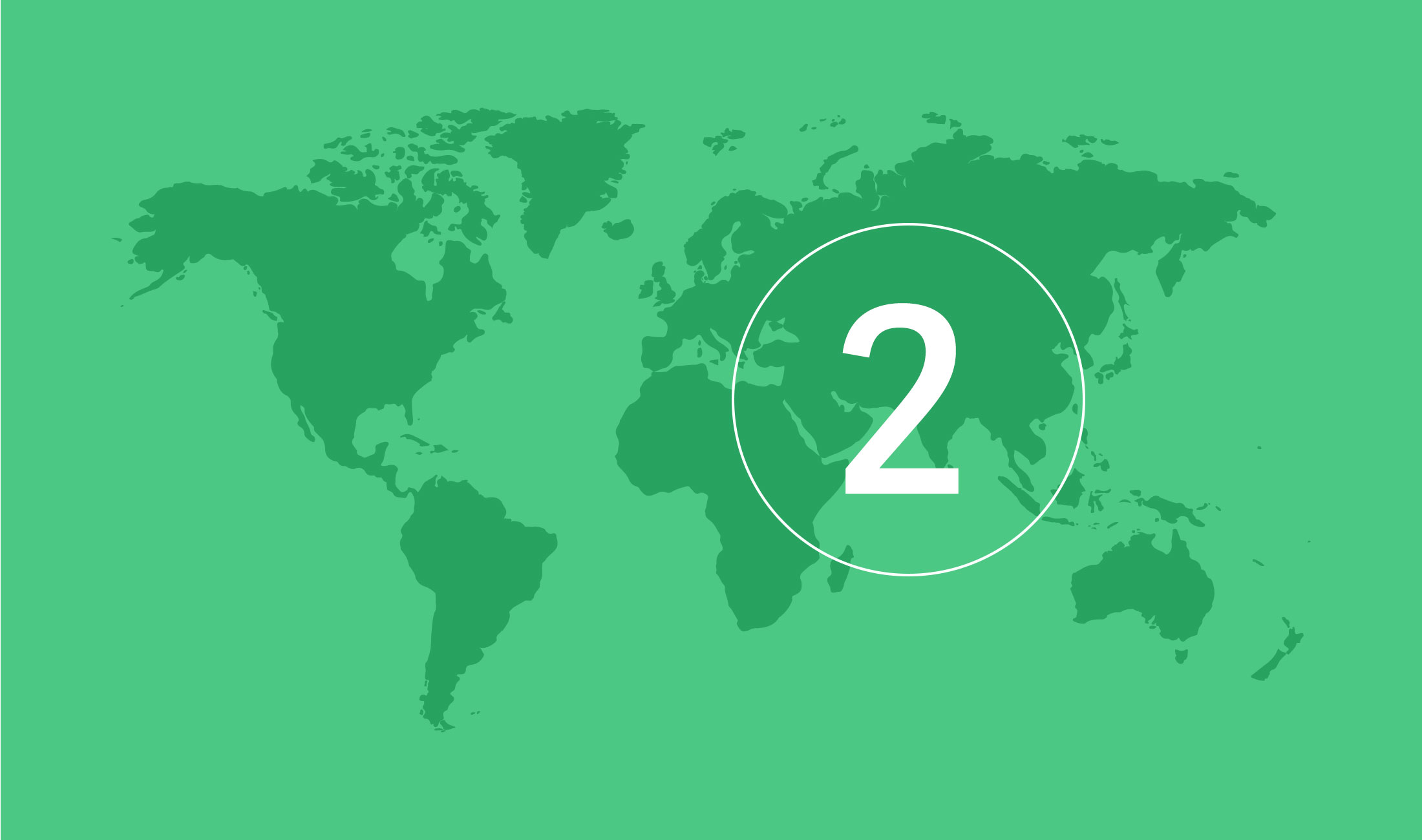
Saudi Arabia
Category
2
- 0
- 1
- 2
- 3
- 4
- 5
- 6
- 7
| Risk type | Short | Long |
|---|---|---|
| Sovereign |

|

|
| Public |

|

|
| Bank |

|

|
| Corporate |

|

|
The icons indicate EKN's risk assessment.

No policy established

Normal risk assessment

Restrictive risk assessment

Normally off cover

OECD or EU countries
Country risk analysis
Country risk analysis archive
Country Risk Analysis of Saudi Arabia
February 2025
An energy powerhouse in transition
Thanks to substantial oil and gas reserves, Saudi Arabia ranks as the world’s 20th largest economy in terms of GDP, is a member of the G20, and is regarded as an energy policy superpower. The country has long been the world’s largest oil exporter, with the oil and gas sectors together contributing around 40 per cent of GDP and approximately 60 per cent of government revenues (down from around 90 per cent a decade earlier).
Forecasts for oil prices over the coming years are expected to partly support the country’s comprehensive diversification strategy, known as Vision 2030, which aims to increase the non-energy contribution to GDP. The ambition is to make the economy less vulnerable to oil price fluctuations and to strengthen its long-term growth capacity, given that fossil fuels are expected to make up a declining share of global energy consumption. Reforms in recent years have also included significant increases in social rights, aiming to enhance the country’s attractiveness to both capital and labour.
Saudi Arabia’s country risk classification is also supported by its long-standing position as a leading member of OPEC+ and its substantial production capacity, which allows the country to increase or reduce supply relatively quickly and thereby influence global oil price trends. Public finances are strong, and public debt is around 30 per cent of GDP.
The external position is sound due to historical current account surpluses but is expected to deteriorate in the coming years owing to significant anticipated investment needs in line with the ongoing diversification strategy. In addition, the country holds extensive assets in oil funds.
The sovereign wealth fund, the Public Investment Fund, is among the largest in the world and has been tasked with leading the Vision 2030 strategy by establishing new companies in key sectors and implementing a number of large-scale, high-profile diversification projects. If these projects are successfully implemented and stimulate private investment, they may contribute to a higher structural growth rate in the non-oil economy.
The financial buffers — both in the form of oil funds and foreign currency reserves — have been built up over decades of current account surpluses. According to the IMF, external debt has continued to rise, but remains fully manageable. In 2024, private and public bond issuance is expected to reach USD 33 billion according to Bloomberg, making Saudi Arabia the largest bond issuer among all emerging markets.
The Saudi riyal’s fixed exchange rate against the US dollar is expected to be maintained over the long term, given the country’s strong external financial position and the stability of the exchange rate regime since the mid-1980s.
Diversification relies on oil revenues
GDP growth for the current year has been gradually revised downward as previously decided oil production cuts have remained in place. The IMF forecasts average annual growth of around 4.5 per cent in 2025 and 2026. Over the same period, the services sector is expected to expand strongly, supported by ongoing social liberalisation and increasing female labour force participation. According to the World Bank, female labour force participation reached 35 per cent in 2023, representing an increase of just over ten percentage points compared with ten years earlier.
To implement Vision 2030, public investment is expected to rise in the coming years and contribute to growth. The capacity to finance these investments is considered relatively strong, given the favourable starting point of low public debt and substantial financial assets.
The domestic political situation is stable, and the system of government — a centralised monarchy — is expected to remain in place. In September 2022, the position of Prime Minister was formally transferred from the King to Crown Prince Mohammed bin Salman, aged 39, further consolidating his position as heir to the throne.
A recent agreement brokered by China has led to the normalisation of diplomatic relations between Iran and Saudi Arabia, signalling a de-escalation of tensions, although proxy conflicts, such as in Yemen, are likely to continue. The process of normalising relations with Israel has been put on hold due to the ongoing war in Gaza, but is expected to resume over the longer term.
Looking ahead, the key risks include failure to deliver structural reforms or a scenario where the pace of global energy transition accelerates beyond current expectations while Saudi Arabia fails to adjust its economy accordingly.
Geopolitical tensions in the region will also continue to pose a risk in the foreseeable future. Ongoing tensions with Iran may continue to affect Saudi Arabia’s ability to produce and/or export oil, particularly via the Strait of Hormuz.
In terms of physical climate risks and natural disasters, Saudi Arabia faces, on the one hand, a lower risk of floods and landslides than the average for both OECD high-income countries and lower-middle-income countries. On the other hand, risks related to water scarcity and wildfires are significantly higher compared with both reference groups. Saudi Arabia, with its naturally limited access to freshwater, meets virtually all of its needs through desalination plants along its coastlines.
Business environment
In Transparency International’s Corruption Perceptions Index, Saudi Arabia ranked 53rd out of 180 countries in 2023 — one of the better performers in the region. In Freedom House’s 2023 rankings, Saudi Arabia scores poorly, particularly with regard to political rights.
Saudi Arabia has shown improvement in the World Bank’s Governance Indicators (which assess countries’ institutional capacity and business climate), placing above the regional average overall, though still significantly below the strongest performer in the region, neighbouring United Arab Emirates.
In 2021, Saudi Arabia introduced new legislation for the handling of commercial disputes, aimed at streamlining processes and aligning the country’s legal framework more closely with international standards. Saudi Arabia and the United Arab Emirates have, for several years, been competing to attract foreign capital and labour, a dynamic that is expected to gradually lead to further improvements in the overall business climate in both economies.
The Saudi banking sector is well developed and operates under a modern regulatory framework with adequate supervision by the Saudi Central Bank (SAMA). The sector is well capitalised and has shown resilience during periods of lower oil prices, supported by liquidity provision from the central bank. The share of non-performing loans has returned to pre-pandemic levels (just below two per cent), and banks are generally well positioned to manage credit losses. The sector is expected to benefit from the anticipated economic diversification in the coming years, which is likely to broaden its customer base.
EKN’s business assessment takes into account the risk of negative impacts on human rights. EKN focuses on the impact of the activity in which the exported goods will be used. In this context, issues such as working conditions, child and forced labour, excessive use of force by security forces, indigenous peoples’ rights and land rights are of great importance.
Saudi Arabia generally has a higher human rights risk profile than the group of OECD high-income countries. For risk areas such as child labour, access to remedy, and indigenous rights, the risks are considered lower than in lower-middle-income countries. However, in the sub-indices for security forces and human rights, working environment and safety, and freedom of association and collective bargaining, risk levels are assessed as higher.
EKN’s policy
EKN classifies Saudi Arabia in country risk category 2 out of 7, an assessment made in cooperation with the OECD. Normal risk assessment applies to all categories of debtors except companies. Normal risk assessment means there are no pre-established restrictions on the issuance of guarantees, and transactions are assessed on their own merits without specific conditions or requirements.
During previous economic downturns, payment experience has deteriorated noticeably. For this reason, EKN applies a premium surcharge for certain corporate risks. EKN observed increased payment difficulties in the aftermath of the 2014 oil price collapse. These problems stemmed from the state’s limited ability to implement fiscal tightening in an orderly manner, as well as from declining willingness or capacity to pay.
EKN’s commitment and experience
EKN’s guarantees include export transactions to private buyers in the country in sectors such as telecommunications and energy. Between 2020 and 2024, EKN issued guarantees for 50 transactions totalling just over SEK 9.4 billion for Swedish companies exporting to Saudi Arabia. The telecommunications sector represented the largest share by value.
EKN’s payment experience is mixed. Following the global oil price decline from 2014 and the resulting deterioration in public finances, public buyers exhibited weaker payment patterns. The government began accumulating arrears to contractors in 2015, which in turn delayed payments to foreign suppliers.
EKN has encountered payment problems primarily in the construction and transport sectors. Buyers in these sectors often face delays in receiving payment from public entities and, as a result, delay their own payments to foreign suppliers.
These issues highlight the state’s limited ability to carry out fiscal consolidation in an orderly manner and, at times, a weak payment culture. Government payment delays have occurred in previous periods of falling oil prices in Saudi Arabia. Local promissory notes and bills of exchange have in several cases proven to be effective tools to apply pressure in the event of payment difficulties.
Claims settlements (instances where EKN compensates the exporter for non-payment by the buyer) do occur, and of the claims arising between 2017 and 2021, approximately half have so far been recovered.
More for companies that want to export to Saudi Arabia

EKN's guarantees
EKN's guarantees reduce the risk of payment defaults and help banks support businesses. Which guarantee suits your needs?
EKN's guarantees
Guarantee guide
Are you unsure which guarantee is the best fit for your specific transaction? Try our guarantee guide.
Guarantee guide